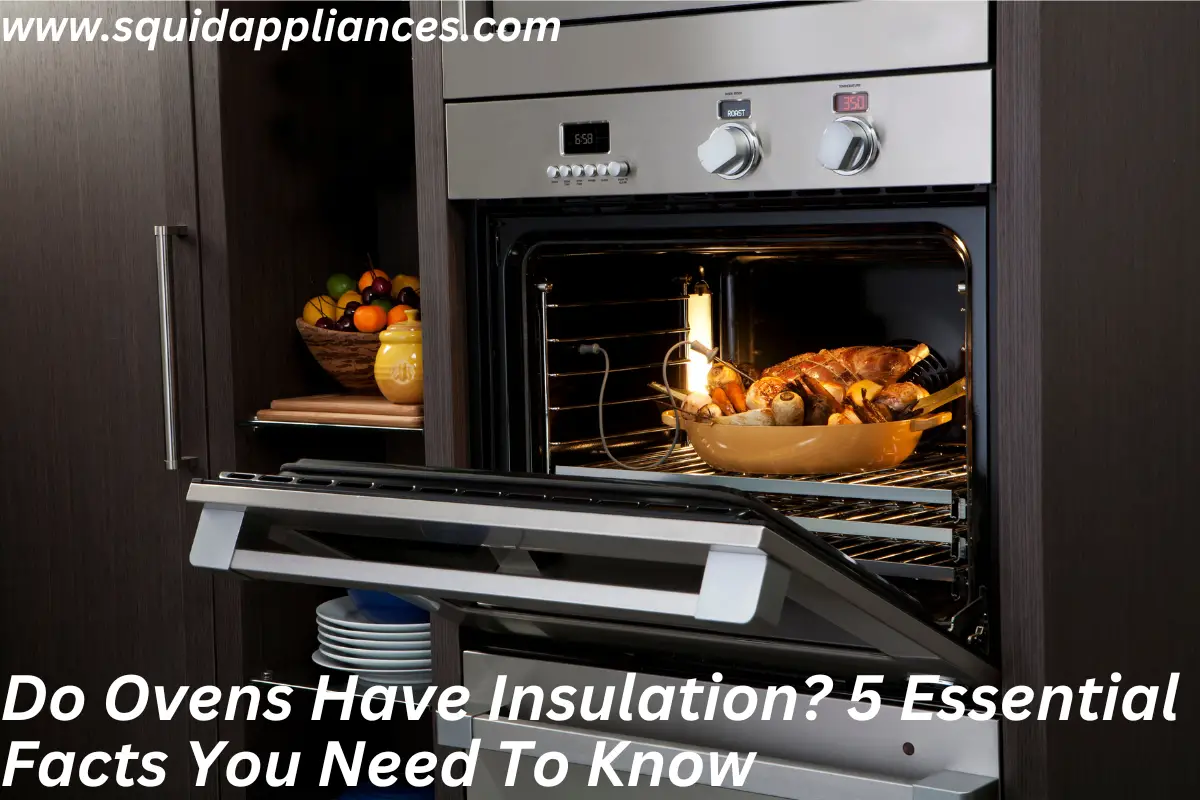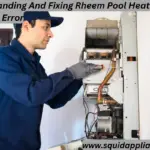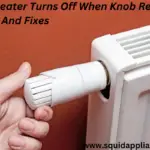Hey there! Ever wondered if ovens have insulation? Well, let me enlighten you with 5 essential facts that you need to know.
As a kitchen enthusiast, I’ve always been curious about the inner workings of appliances, especially ovens. So, here’s what I discovered.
First things first, oven insulation is incredibly important for various reasons. Not only does it help maintain consistent temperatures and improve cooking efficiency, but it also plays a crucial role in preventing heat loss and reducing energy consumption.
But how does oven insulation actually work? It’s fascinating! The insulation material acts as a barrier between the hot interior of the oven and its surroundings, effectively trapping the heat inside.
Proper oven insulation brings along numerous benefits such as faster preheating times and even cooking results. Plus, it helps prevent your kitchen from getting uncomfortably hot while your meal is being prepared.
However, insufficient or damaged insulation can lead to a range of issues like longer cooking times and unevenly cooked food. That’s why it’s vital to know the signs of inadequate insulation in your oven and take appropriate measures to maintain or upgrade it when necessary.
So buckle up as we dive deeper into this topic and explore everything you need to know about oven insulation!
Do Ovens Have Insulation?
Yes, ovens have insulation. Oven insulation is crucial, maintaining consistent temperatures, improving cooking efficiency, and reducing energy consumption. Materials like fiberglass, ceramic fiber, or mineral wool are commonly used. Insufficient insulation leads to longer cooking times and unevenly cooked food, emphasizing the importance of proper maintenance and upgrades for optimal performance.
Key Takeaways
- Oven insulation is crucial for maintaining consistent temperatures and improving cooking efficiency.
- Insufficient or damaged insulation can lead to longer cooking times and unevenly cooked food.
- Common insulation materials used in ovens include fiberglass, ceramic fiber, and mineral wool.
- Proper oven insulation contributes to energy efficiency and lower utility bills.
The Importance of Oven Insulation
You might not realize it, but oven insulation is absolutely crucial for ensuring that your baked goods come out perfectly cooked every time. The importance of energy efficiency can’t be overstated when it comes to ovens.
Proper insulation helps to trap the heat inside the oven, reducing energy waste and saving you money on your utility bills.
Additionally, insulation has a direct impact on cooking performance by maintaining a consistent temperature throughout the baking process.
How Oven Insulation Works
When it comes to oven insulation, understanding how it works is crucial. Insulation materials used in ovens are designed to minimize heat transfer and keep the temperature inside consistent.
There are various types of insulation materials, such as fiberglass, ceramic fibers, or mineral wool, that have low thermal conductivity. This means they’re effective at reducing heat flow and maintaining a stable cooking environment. It’s this insulation that ensures your food cooks evenly and efficiently.
Benefits of Proper Oven Insulation
Imagine enjoying perfectly cooked meals every time without worrying about uneven cooking or burnt edges. With proper oven insulation, you can experience the benefits of consistent temperature control and efficient heat distribution.
Not only does oven insulation contribute to energy efficiency by reducing heat loss, but it also helps in retaining heat within the oven cavity. This means that your oven will require less energy to maintain the desired temperature, resulting in lower energy bills and a more sustainable cooking experience.
Signs of Insufficient Insulation in Your Oven
Lacking proper insulation, your oven may show signs of uneven cooking and burnt edges. To determine if your oven has insufficient insulation, look for these telltale signs:
- Heat escaping from the oven door
- Increased energy consumption
- Longer preheating times
- Inconsistent temperature control
Common insulation materials used in ovens include fiberglass, ceramic fiber, and mineral wool. Proper insulation doesn’t just improve cooking performance but also enhances energy efficiency by preventing heat loss.
Maintaining and Upgrading Oven Insulation
To ensure your oven is performing at its best, it’s important to maintain and upgrade the insulation. Upgrading insulation can help improve energy efficiency and prevent heat loss, resulting in faster cooking times and lower energy bills.
Regular oven maintenance, such as cleaning the interior and checking for any signs of damage or wear, is also crucial to ensure optimal performance. By taking these steps, you can extend the lifespan of your oven and enjoy consistent cooking results.
Frequently Asked Questions
How can I tell if my oven has sufficient insulation?
To determine if your oven has sufficient insulation, check for any signs of heat loss such as hot spots or uneven cooking. Proper insulation is crucial for energy efficiency as it prevents heat from escaping and ensures even cooking throughout the oven.
Can I add insulation to my oven if it doesn’t have enough?
Yes, you can add insulation to your oven if it doesn’t have enough. Adding insulation has several benefits, such as improved heat retention and energy efficiency. It can also help prevent heat loss and ensure more even cooking temperatures.
Does oven insulation affect cooking times?
Oven insulation plays a crucial role in maintaining precise temperature control, which directly affects cooking times. It also contributes to energy efficiency by reducing heat loss. Proper insulation ensures more accurate and efficient cooking results.
Is oven insulation necessary for all types of ovens?
Oven insulation is necessary for all types of ovens. It helps maintain consistent temperatures, improves energy efficiency, and reduces cooking time. The pros include better heat retention, while the cons are potential higher costs and limited space inside the oven.
Can insufficient oven insulation lead to energy waste?
Insufficient oven insulation can definitely lead to energy waste, resulting in lower energy efficiency and a negative environmental impact. It’s crucial to ensure proper insulation to maximize energy savings and reduce our carbon footprint.
Conclusion
In conclusion, proper oven insulation is crucial for efficient and safe cooking. It helps to maintain consistent temperatures, reduces energy consumption, and prevents heat loss.
Insufficient insulation can lead to uneven cooking, longer cooking times, and higher energy bills. Regular maintenance and upgrading of oven insulation is necessary to ensure optimal performance.
So, if you want your meals to be cooked perfectly every time while saving on energy costs, make sure your oven has the right amount of insulation.






